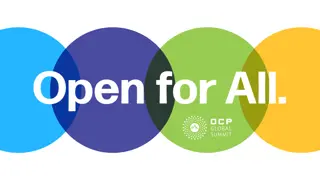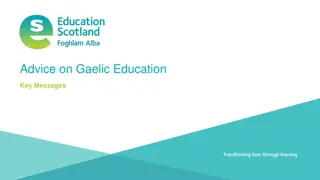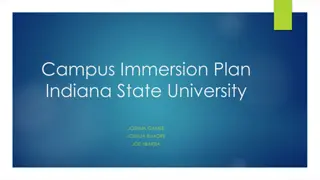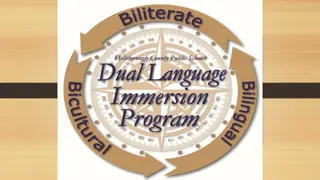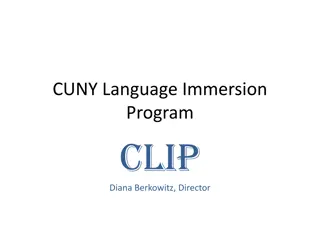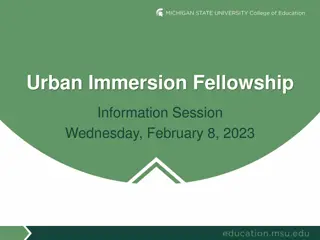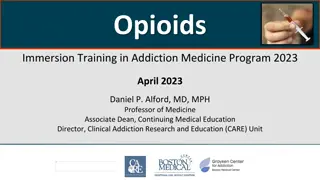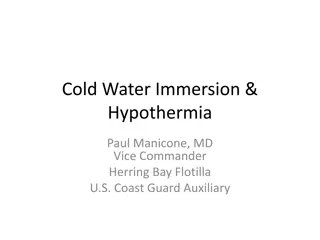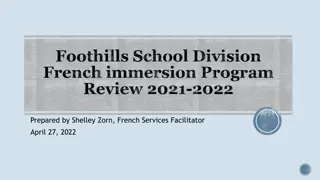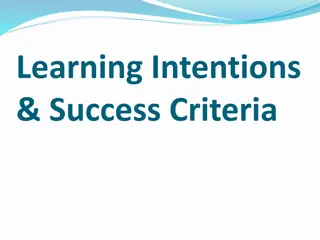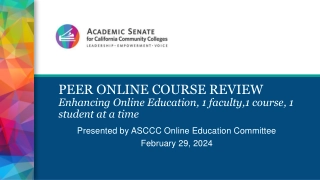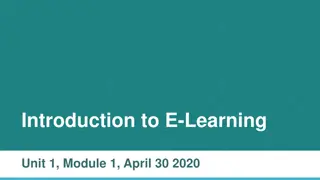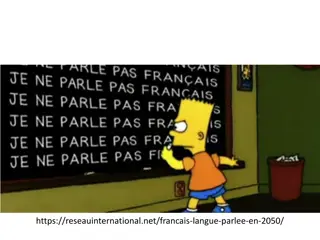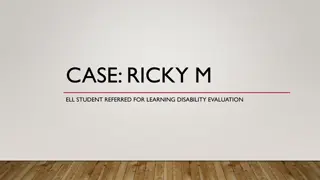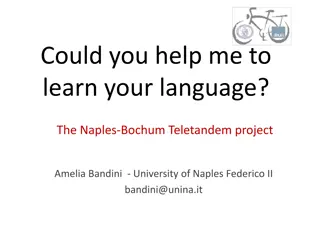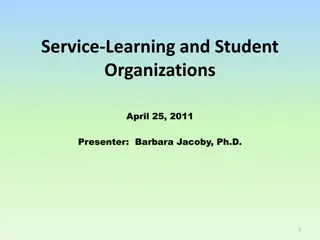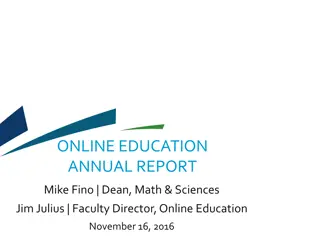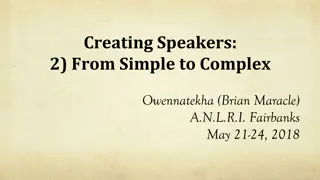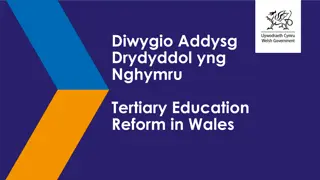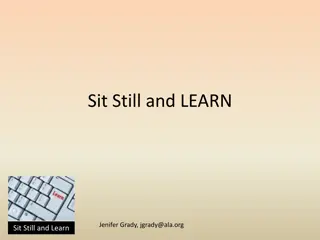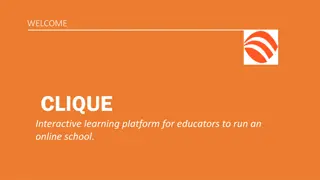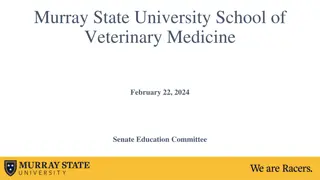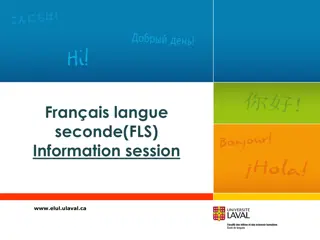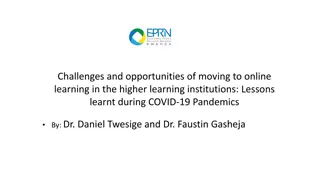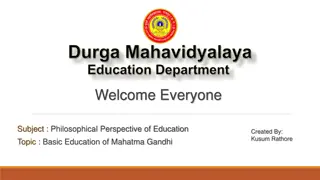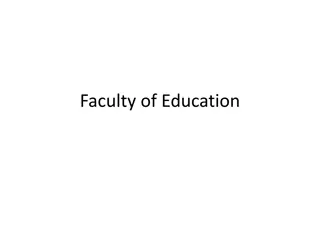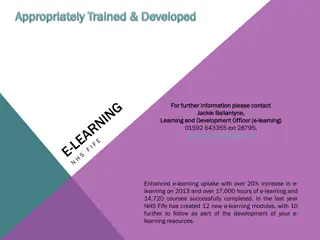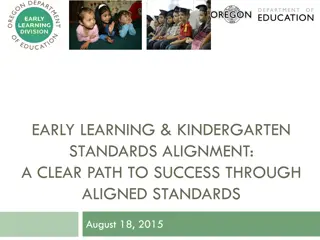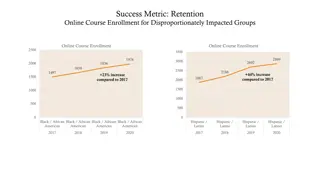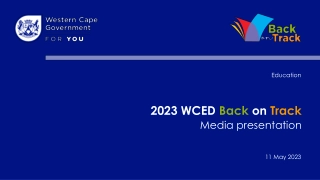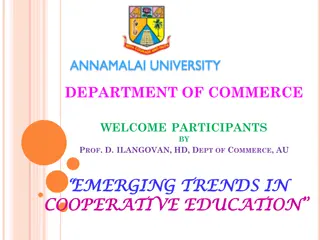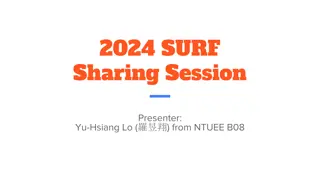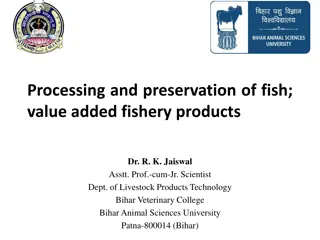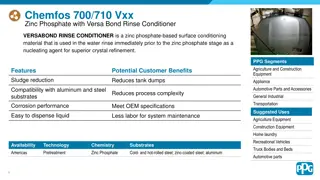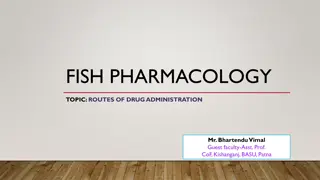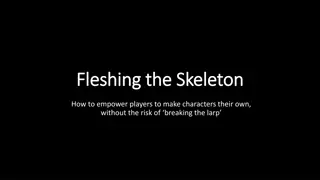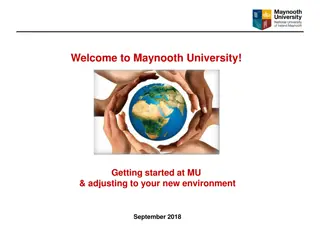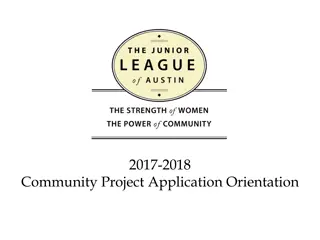Immersion Education for Online Learning Success
Immersion education, typically used in fields like geology, has shown to enhance conceptual understanding. Can online environments be leveraged for immersion education? This study explores the impact of immersion education on student learning outcomes in an online Introduction to Environmental Geology course. Using the Geoscience Concept Inventory, the course's effectiveness is evaluated by comparing student performance before and after the course. Findings suggest potential benefits of incorporating immersion techniques in online learning environments.
- Immersion Education
- Online Learning
- Student Outcomes
- Geoscience Concept Inventory
- Educational Research
Download Presentation

Please find below an Image/Link to download the presentation.
The content on the website is provided AS IS for your information and personal use only. It may not be sold, licensed, or shared on other websites without obtaining consent from the author. Download presentation by click this link. If you encounter any issues during the download, it is possible that the publisher has removed the file from their server.
E N D
Presentation Transcript
Learning So Fast Youll Freak: The Effect of Immersion on Online Learning Success Official Sponsor: Unofficial Sponsor: Dr. Mike Brudzinski (1) Dr. Stefany Sit (2) (1) Miami University (Ohio) (2) University of Illinois - Chicago
Immersion Education Immersion education often describes when elementary students are taught in a second language, which is more successful than a single daily class (e.g., Johnson and Swain, 1997) Immersion style is also common for undergraduate geology, typically in a field camp intensive ~5 week field immersion (Whitmeyer and Mogk, 2009) Intro geology courses taught as compressed field immersions result in higher conceptual understanding than classroom-based courses (e.g., Elkins and Elkins, 2007) Yet field immersions are logistically difficult and essentially impossible for large enrollment service courses Can online environments be used for immersion education?
Course Summary Introduction to Environmental Geology Focus on Natural Disasters Introductory course that fulfills physical science requirement of liberal ed plan Traditional, Active-learning, Hybrid, Online 15 weeks (semester) or 3 weeks (winter term) 50-90 students Online discussion groups of ~10
Student Learning Outcomes Select and/or generate possible answers (hypotheses) to key questions Collect and analyze data Place the results of data analysis in context of other experiments Evaluate hypotheses based on results Disseminate conclusions to peers Convey the scientific information to the general public
Evaluation with the GCI Geoscience Concept Inventory (GCI) Set of conceptually based questions developed by geosciences education researchers (Libarkin and Anderson, 2005) Evaluated and validated using item analysis techniques from both classical test theory and item response theory The same set of 25 questions employed online in all cases (most intro geology courses in our department since 2007)
Evaluation with the GCI Geoscience Concept Inventory (GCI) Impact of course on student performance is estimated by calculating normalized improvement Compare end of course GCI scores with start of course GCI scores for each student Uncertainties calculated with jackknife resampling (Kunsch, 1989)
Student Performance Gains Traditional Lecture- Based Active- Learning Revision Active E-Learning GCIGAIN 9.2 1.0% 17.2 0.8% 24.5 2.0% # Students 441 1121 207
Interpretation Traditional to Active-Learning improvements were interpreted as due to purposeful re- design to focus more on student engagement [Brudzinski and Sikorski, 2011] In-Class to Online improvements were interpreted as due to more authentic scientific investigations with more practice & immediate feedback [Sit and Brudzinski, in revision]
Online Class Format 10-20 minute video lectures Summarize key points and integrate activities with broader concepts Primarily Voice Over PowerPoint Some computer skill walk-throughs too
Online Class Format Moodle Assignment (30-50 questions) Multiple choice, multiple answer, numerical, short answer questions Immediate feedback, re-answer for partial credit Can retake entire assignment (scores averaged) Encouraged to ask questions and discuss with other students through discussion boards Require use Google Earth, Excel, web databases
How steep is this volcano? 1. Flat: small (< 10%) average slope and small (< 10%) maximum slope Gentle: small (< 10%) average slope but moderate (10-50%) maximum slope Irregular: small (< 10%) average slope but large (> 50%) maximum slope Moderate: moderate (10- 50%) average slope and moderate (10-50%) maximum slope Steep: moderate (10-50%) average slope but large (> 50%) maximum slope Math? Really?!?! 43% 43% 2. 14% 3. 0% 0% 0% More math? Really?!?! Moderate: moderate (10-50.. Gentle: small (< 10%) averag... Steep: moderate (10-50%) a... Irregular: small (< 10%) avera.. Flat: small (< 10%) average s... 4. 5. 6.
Effect of Immersion Online Opportunity to isolate the impact of immersion in these courses: Fully online versions offered in both a traditional 15-week semester and a 3-week winter term Essentially no change in course design other than the time frame About 6-9 hours coursework/day, 5 days/week 3 weeks 15 weeks
Student Performance Gains 15 Week Hybrid 15 Week Online 3 Week Online GCIGAIN 19.4 2.8% 19.7 3.6% 30.3 3.6% # Students 83 73 51
Interpretation Intro geology courses taught as compressed field immersions result in higher GCI scores than classroom- based courses (e.g., Elkins and Elkins, 2007) 3-week Winter Term course has no field component, which implies the compression and intensiveness are the key to creating immersion that improves student conceptual understanding This is reminiscent of the improved outcomes from being taught in second language all day the intensity results in immersion
Implication: Target Outside of Fall or Spring Institutions should consider focusing online efforts outside traditional 15-week semesters When compressed, immersive courses can be offered more readily When residential students seek online courses because they are typically away from campus
Conclusion A compressed, immersive format improves student learning in online courses based on validated measures of learning outcomes 15 weeks 3 weeks


